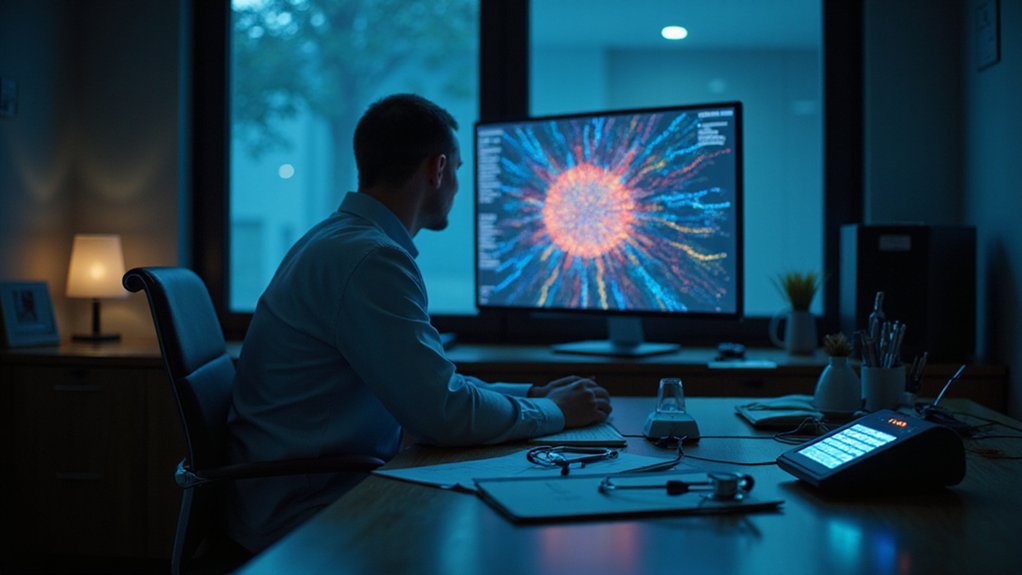While artificial intelligence sweeps through industries with promises of transformation, doctors are digging their heels in. The resistance isn’t surprising. A significant chunk of physicians worry that AI recommendations might clash with their hard-earned clinical experience. They’re not exactly thrilled about machines second-guessing their intuition.
Nearly half of doctors think AI might complicate care rather than simplify it. They’ve spent decades honing their craft, and now some algorithm thinks it knows better? Please. There’s a stubborn belief that machines can’t grasp the nuances of patient care—the unquantifiable stuff like empathy or those subtle cues that experienced physicians pick up on.
Decades of medical expertise trumped by code? No algorithm captures the raised eyebrow that speaks volumes at a patient’s bedside.
The numbers speak volumes. Only 28% of physicians feel ready to use AI while keeping patients safe. More than half are already using AI tools, but without proper training. It’s like handing someone keys to a Ferrari without driving lessons. What could possibly go wrong?
Trust issues run deep. Doctors worry about who takes the fall when AI gets it wrong. Nearly half want more oversight and regulation before they’ll trust these systems. And let’s not forget the awkward conversation: “Well, Mrs. Johnson, my computer thinks your diagnosis is something else entirely.”
Then there’s the practical stuff. Many AI tools don’t play nice with existing electronic health records. They’re supposed to make life easier, not create more administrative headaches. This resistance persists despite AI healthcare market projected to grow to over $200 billion by 2030. Doctors want seamless integration, not another digital task to juggle. The AMA survey reinforces this with 84% of physicians identifying EHR integration as a key attribute for advancing AI adoption.
Privacy concerns loom large too. Patient data in the hands of third-party vendors? That’s a recipe for nervous physicians and potential lawsuits. A staggering 76% of physicians worry about liability for inaccurate AI-generated data.
Beneath it all lies an existential fear. Will AI eventually replace physicians? Will it reduce their autonomy or diminish their professional identity? The resistance isn’t just about protecting patients—it’s about protecting themselves in a rapidly changing environment.
The doctor-AI relationship status: It’s complicated.
References
- https://www.ama-assn.org/press-center/ama-press-releases/ama-physician-enthusiasm-grows-health-care-ai
- https://www.medicaleconomics.com/view/physicians-see-ai-as-a-tool-and-a-threat
- https://www.ama-assn.org/practice-management/digital-health/2-3-physicians-are-using-health-ai-78-2023
- https://www.athenahealth.com/resources/blog/ai-in-healthcare-physician-sentiments
- https://learn.hms.harvard.edu/insights/all-insights/how-artificial-intelligence-disrupting-medicine-and-what-it-means-physicians









